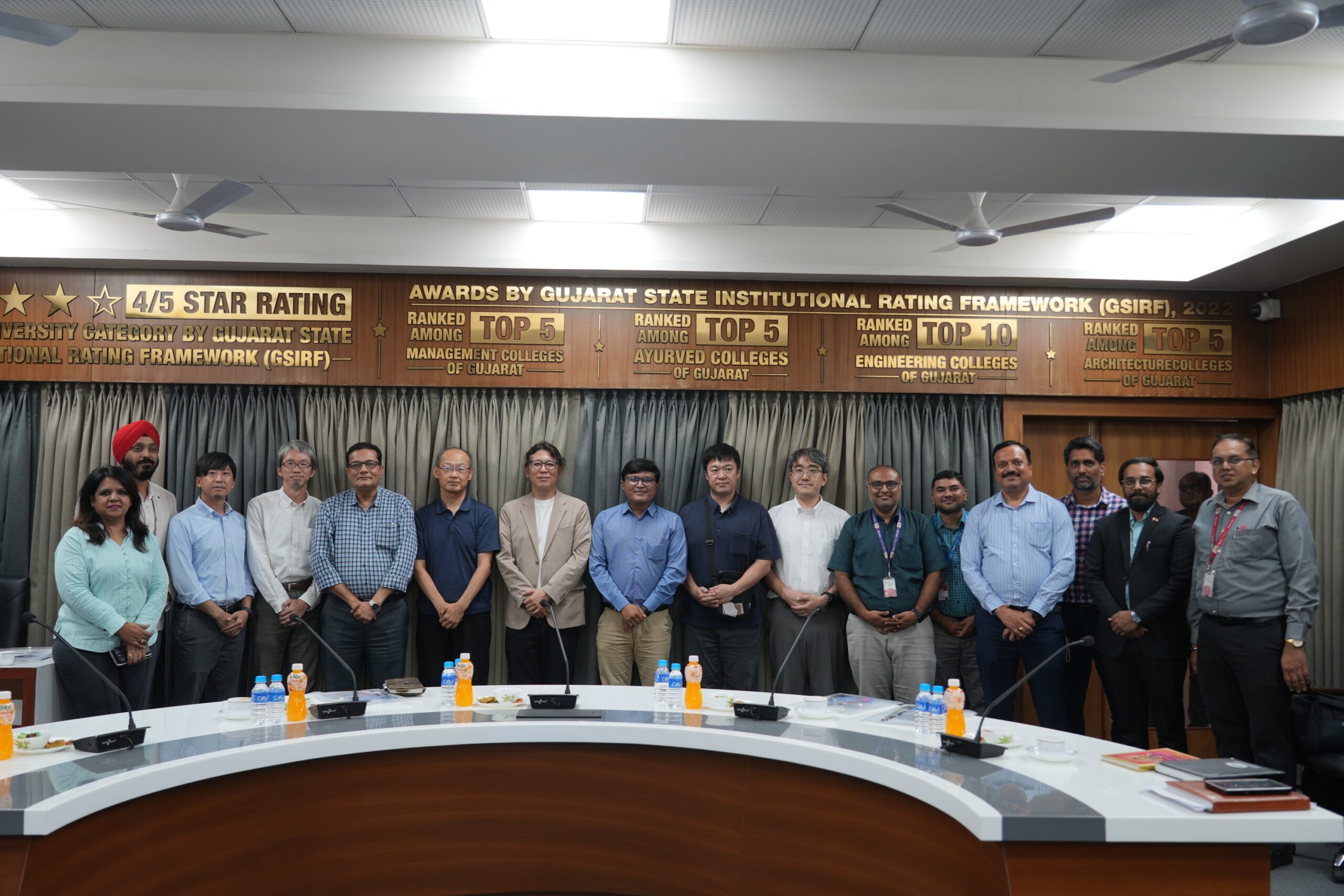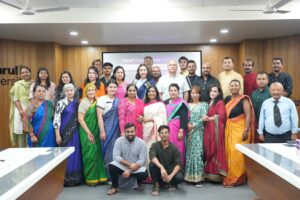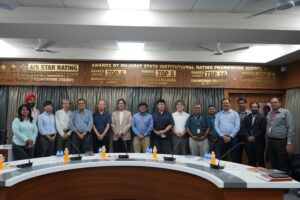Now More Than Ever, Why Is It Important for Academia to Adapt to Global Careers?
YAMAHA Corporate Services and senior leadership from JETRO (Japanese External Trade Organization) recently visited Parul University for a strategic dialogue that could reshape how we prepare students for the global workforce. This visit aimed to foster collaboration and align students with international industry standards, potentially leading to internships and placements.
YAMAHA, a worldwide leading company in the production and automotive parts, motorbikes, and high-tech manufacturing technologies, offers decades of experience in precision and quality management. Japanese government organization referred to as JETRO, specializing in promoting international trade and investment in Japan, possesses distinctive knowledge in the sphere of international business and international cooperation approaches.
The major theme during the visit was a simple question: How can academic institutions and global companies work together more effectively? The discussions were refreshingly direct, focusing on practical solutions rather than abstract concepts.
YAMAHA representatives discussed the kind of skills that they require, not only technically but also adapting to work cross-culturally, thinking critically, and adjusting themselves to the business environment. The view of JETRO on international trade also provided an addition to this dimension, demonstrating that the nature of businesses in the present day demanded the services of employees with the ability to comprehend international markets.
There was sincerity in ideating organized programs that would be beneficial to the students as well as the company. It is like a two-way street whereby students can experience industry-relevant work and the companies can get new views, together with new talent.
Truth be told, the job market nowadays is not like it was five years ago. Our students no longer compete with one another in the local world, and they are the resources of a worldwide talent pool. When a company such as YAMAHA visits the campus, they are not simply giving jobs but rather showing them how international companies conduct operations.
The alignment of the curriculum with the requirements of the automotive and technology industry, especially in the points where academic training overlaps with real industry practice, was put forth for discussion.
Other areas discussed were faculty exchange opportunities, joint research, and the development of curricula that embrace overseas industry standards. The strategy will help keep education in academia at par with the demands of the market without sacrificing quality.
The visit is one of the ongoing moves towards linking academic institutions to global industry counterparts. The partnerships should solve a more pragmatic problem of supporting graduates ready to face the evolving job markets and deliver these graduates to corporations that can access talent.
The YAMAHA-JETRO dialogue concerned the particular actions of implementation: well-organized internship programs, updating the curriculum to industry needs, and a certain part of the cross-cultural training. The basis of the possible long-term cooperation of the organizations lies in these discussions.
These alliances represent the necessity of looking beyond the bounds of textbooks and classrooms. Today, education’s interaction with the industry worldwide is a requisite in making sure that the graduates are in the right place.
Trending Topics
Can AI and Literature Coexist? Summer School Program Explores the Answer
A question lingers in an age in which algorithms
September 30, 2025
Now More Than Ever, Why Is It Important for Academia to Adapt to Global Careers?
YAMAHA Corporate Services and senior leadership from JETRO (Japanese External Trade Organization) recently visited Parul...
November 20, 2025
PU Achieves a Remarkable Debut in Global Rankings, Ranked Among Top 50 Indian Institutions in THE Impact Rankings 2025
Vadodara-based PU has made its mark on the global academic map by registering a remarkable...
November 20, 2025






